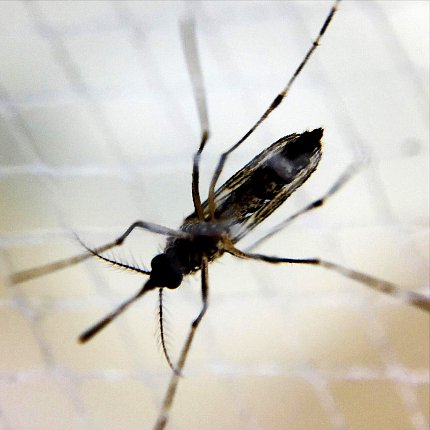Experimental Dengue Vaccine Protects All Recipients in Virus Challenge Study

Photo: NIAID
A clinical trial in which volunteers were infected with dengue virus 6 months after receiving either an experimental dengue vaccine developed by NIH scientists or a placebo injection yielded starkly contrasting results. All 21 volunteers who received the vaccine, TV003, were protected from infection, while all 20 placebo recipients developed infection. The study, published in Science Translational Medicine, underscores the importance of human challenge studies, in which volunteers are exposed to disease-causing pathogens under carefully controlled conditions.
“The findings from this trial are very encouraging to those of us who have spent many years working on vaccine candidates to protect against dengue, a disease that is a significant burden in much of the world and is now endemic in Puerto Rico,” said Dr. Stephen Whitehead of NIAID. “In fact, these results informed the recent decision by officials at Brazil’s Butantan Institute to advance the TV003 vaccine into a large phase 3 efficacy trial.”
Dengue fever, prevalent throughout the tropics and subtropics, is caused by any of four related dengue viruses—called serotypes—that are spread by Aedes mosquitoes, the same mosquitoes that spread Zika virus. Most of the estimated 390 million people who are infected with dengue virus each year develop either no symptoms or a mild illness. However, some people develop serious or life-threatening illness and large outbreaks lead millions to seek care, severely straining health care infrastructure in endemic countries.
